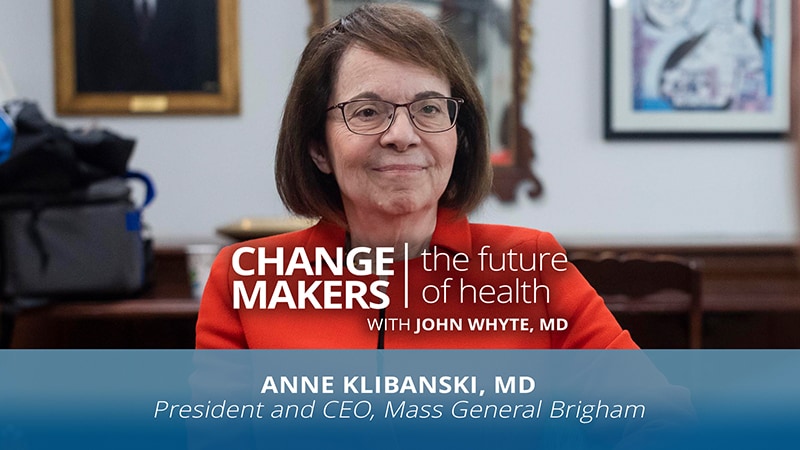The Future of Academic Medicine with Dr. Anne Klibanski
Core Concepts
Academic medicine faces challenges in maintaining innovation, patient-centric care, and adapting to the changing healthcare landscape.
Abstract
The discussion between John Whyte, MD, MPH, and Dr. Anne Klibanski, MD, focuses on the evolving role of academic medicine, patient-centric care, and the impact of technology on healthcare. Dr. Klibanski emphasizes the importance of maintaining academic values while adapting to modern healthcare needs. Key points include:
Role of academic medicine in advancing clinical care and research.
Challenges faced by academic institutions in maintaining relevance.
The need to prioritize patient-centric care and innovation.
Addressing elitism and rigidity in academic medicine.
Importance of patient-reported outcomes and patient-driven care.
Utilizing AI and predictive models in cancer care.
Balancing technology with patient care and the role of electronic health systems.
Ensuring inclusivity and diversity in healthcare leadership.
Threats to academic medicine and the importance of investing in the future.
Change Makers: Dr Anne Klibanski on Transforming Academic Medicine
Stats
Academic medicine translates science into clinical care.
Patient-reported outcomes are used to assess patient needs.
AI is utilized in predicting cancer outcomes.
Healthcare systems face challenges due to regulatory issues.
Academic institutions are threatened by financial constraints.
Quotes
"Academic medicine has always been a way to take the very best of science, of innovation, and translate it into the highest level of clinical care."
"At the heart of everything we do as a healthcare system, we have to put patients first."
"We have to absolutely disrupt that model because fundamentally, it only works for those patients who have access to the system."
Key Insights Distilled From
by John Whyte at www.medscape.com 03-28-2023
https://www.medscape.com/viewarticle/988287
Deeper Inquiries
How can academic medicine address the disparities and discrimination associated with elitism?
Dr. Klibanski highlights the importance of separating the core values of academic medicine from the trappings of elitism and rigidity. To address disparities and discrimination, academic institutions need to focus on patient-centered care, where the needs and experiences of patients are prioritized. By incorporating patient-reported outcomes and diverse datasets that include social determinants of health, academic medicine can ensure a more inclusive and equitable approach to healthcare delivery. Additionally, promoting diversity in leadership and representation within academic institutions can help create a more inclusive environment that reflects the patient population they serve.
What role does patient-driven care play in reshaping the future of healthcare?
Patient-driven care shifts the focus from institutions making decisions to empowering patients to be active participants in their healthcare journey. By listening to patients, understanding their needs, and incorporating patient-reported outcomes, healthcare providers can tailor treatments and interventions to individual preferences and circumstances. This approach not only improves patient satisfaction but also leads to better health outcomes. Patient-driven care is essential in reshaping the future of healthcare by promoting personalized, holistic, and patient-centered approaches that prioritize the well-being and preferences of individuals.
How can healthcare institutions balance financial constraints with the need for innovation and research?
Healthcare institutions face the challenge of balancing financial constraints with the imperative to invest in innovation and research. Dr. Klibanski emphasizes the importance of maintaining a sustainable financial model to support academic medicine's core functions, such as research, training, and innovation. To achieve this balance, institutions can explore partnerships with technology providers, leverage data analytics to optimize resource allocation, and prioritize cost-effective strategies that drive quality care. Additionally, advocating for regulatory reforms, promoting cross-licensure, and addressing disparities in healthcare access can help create a more equitable and financially sustainable healthcare system that fosters innovation and research.
0
